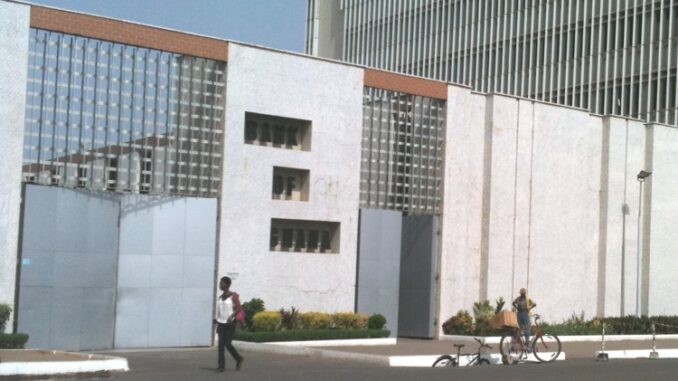
Ghana announced on Monday the “temporary” suspension of payments on part of its external debt, including Eurobonds, as it seeks to restructure it after an agreement with the International Monetary Fund (IMF) last week.
“We are announcing today (Monday) the suspension of all debt service payments on certain categories of our external debt, pending restructuring,” Ghana’s Finance Minister Ken Ofori-Atta said in a statement. This measure aims to “prevent a further deterioration of the economic, financial, and social situation of Ghana,” he said.
With inflation at an all-time high of more than 50 percent, the local currency collapsing, prices at the pump doubling, and debt repayment swallowing up half of government revenue, Ghana is in the grip of a severe economic crisis. It’s the worst in decades. The fall in the value of the currency, the cedi, which has devalued by more than 50 percent against the U.S. dollar, has contributed to a $6 billion increase in the value of the debt.
Until a few years ago, Ghana was held up as an example in Africa for its high growth rates, rising oil production, and strong investor interest. But like much of the African continent, Ghana struggled to recover from the downturn caused by the global COVID-19 pandemic before being hit hard by the economic fallout from the war in Ukraine.
President Nana Akufo-Addo turned to the IMF to avoid defaulting on his debt, having once promised “Ghana without aid.” It must be said that as the country sinks into crisis, investors are turning away from it.
For instance, the government signed a $3 billion bailout agreement with the IMF last week to shore up public finances. An important part of the IMF agreement is to return the country to sustainable debt through a restructuring, asking investors to exchange their bonds for new ones maturing later.
Three major international agencies have all downgraded Ghana’s debt rating, a sign of investor concern about its potential default. “The ministry has not yet engaged with the creditors.” “Whether or not they accept the conditions of the Ministry of Finance is another matter,” he said. He added: “We are moving on very difficult terrain.”
